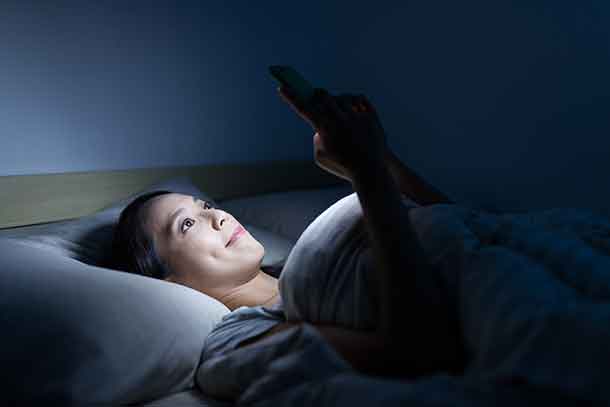It’s late, and although you know you’ll pay the price tomorrow, you start streaming another episode, browsing social media or answering emails. You know it’s a bad idea — so why do you do it anyway? That’s what University of Florida doctoral student Yijun Lin hopes to discover.
Through the pandemic, with so many people either working from home, or not working, the changes in many people’s daily lives has become blurred.
While Lin’s own struggles with bedtime procrastination sparked her interest, she knows plenty of other people with the same pattern.
“Bedtime procrastination is so common, but studies of it are in the very early stage,” she said. “I was so curious why this phenomenon emerged.”
Certain people may be more susceptible: Night owls have a harder time sticking to their planned bedtime, as do those who test low in self-control. In a study of 400 participants, Lin found that those age 18-25 flouted their planned bedtime the most. But Lin’s hunch is that, while individual differences may contribute, subverting your own sleep goals may be best viewed as a societal problem. As we juggle work and personal demands, “many people say that they have bedtime procrastination because they don’t have enough ‘me time,’” she said.
As part of the Florida Social Cognition and Emotion lab in UF’s Department of Psychology, Lin looks at how valence (feeling good or bad) and arousal (feeling calm or excited) relate to our battle with bedtime. Why does it matter? In Lin’s study and many others, putting off bedtime was linked to not just less sleep, but lower quality sleep, which can feed a host of other issues.
“There’s a huge impact on our health, both physically and mentally,” she said. “It can be a vicious cycle: If you have bad sleep, the second day you may have worse self-control and worse bedtime procrastination.”
By uncovering the causes, Lin hopes her research will help people defeat the habit. People do want to stop sabotaging their sleep, it seems: When Lin tells people what she studies, the most common reply is, “I do that too! How do I stop?”
Lin offers these tips: First, decide on a hard stop time for work tasks or other obligations that might bleed into your off hours. Sign off of email, quit looking at Slack, and defend your pre-bedtime “me time” so you’re not tempted to recapture it when you should be sleeping. Second, leverage technology to help you enforce the separation. Lin has her notifications set to turn off several hours before bed.
“If I work until bedtime, I feel like I need to spend an extra two hours on my phone. But when I engage in my own activities earlier, I feel more prepared for sleep,” she said.
She also recommends avoiding activities like gaming that spark excitement, and resisting the temptation to mull over negative things that happened during the day. You might not always hit your goal bedtime, but when you fail, at least you can recognize what’s going on. On those nights, “it may be helpful to accept this behavior instead of feeling guilty about not going to bed earlier,” Lin said. “That negative emotion is also not good for our health.”






